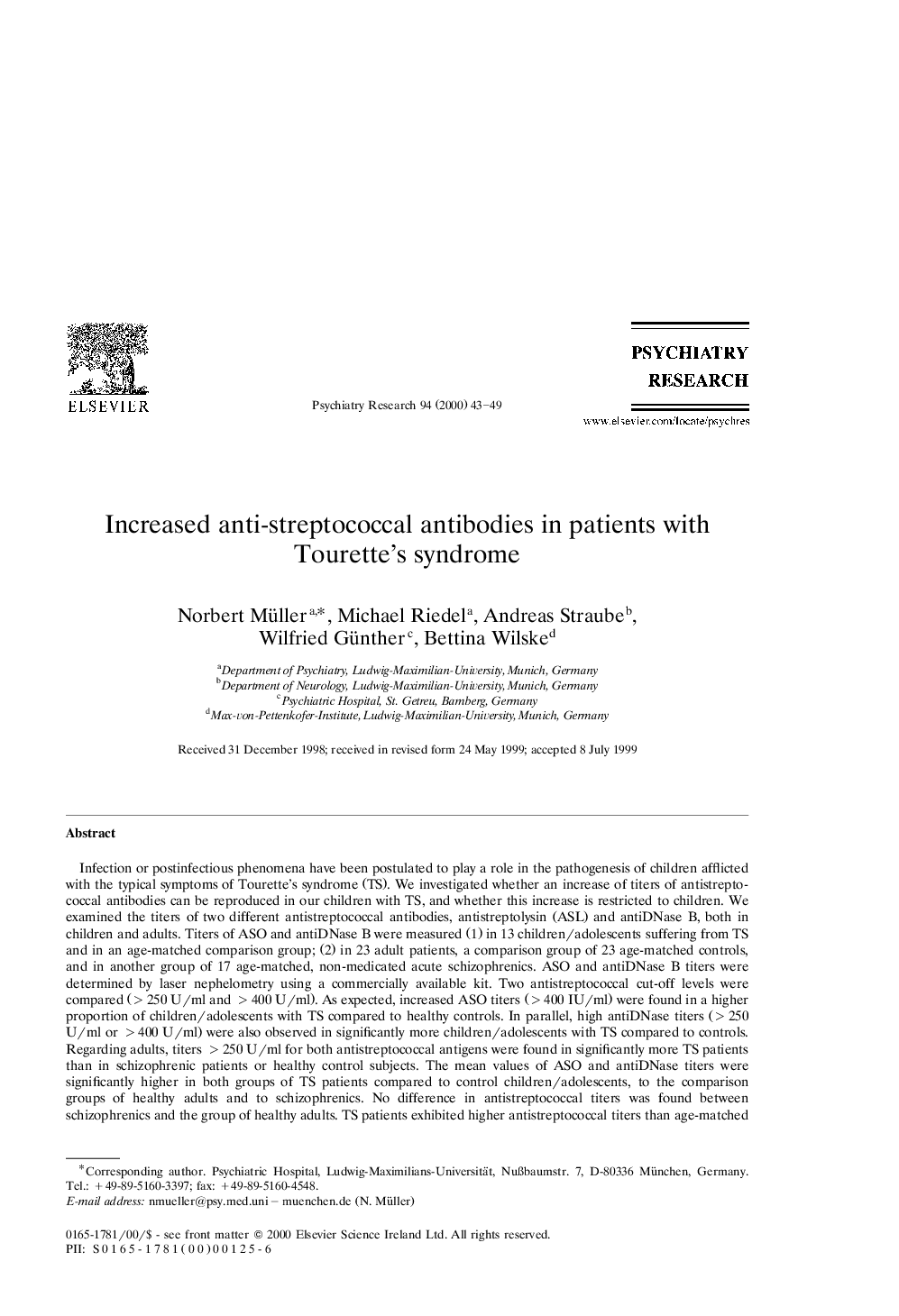ترجمه فارسی عنوان مقاله
آنتی بادی های ضد استرپتوکوکی افزایش یافته در بیماران مبتلا به سندرم تورت
عنوان انگلیسی
Increased anti-streptococcal antibodies in patients with Tourette’s syndrome
| کد مقاله | سال انتشار | تعداد صفحات مقاله انگلیسی |
|---|---|---|
| 75648 | 2000 | 7 صفحه PDF |
منبع

Publisher : Elsevier - Science Direct (الزویر - ساینس دایرکت)
Journal : Psychiatry Research, Volume 94, Issue 1, 24 April 2000, Pages 43–49
ترجمه کلمات کلیدی
سندرم تورت؛ اسکیزوفرنی؛ خود ایمنی؛ آنتی بادی های ضد استرپتوکوکی - پانداها
کلمات کلیدی انگلیسی
Tourette’s syndrome; Schizophrenia; Autoimmunity; Anti-streptococcal antibodies; PANDAS

